- How Suge Knight Made His First Dollar Before Death Row Records
- Death Row Records: Suge Knight's $100 Million Cash Cow
- From Ballin' to Fallin': Suge Knight's Financial Meltdown
- Suge Knight's Net Worth Today: Broke Behind Bars
- The Suge Knight Playbook: Business Wisdom from a Fallen Mogul
- How Legal Nightmares Torched Suge Knight's Empire
- Suge's Success Secrets: The Business Gems Behind the Intimidation
Once sitting on a $100 million empire as Death Row Records' infamous CEO, Suge Knight's bank account has taken a nosedive after years of legal nightmares and a prison cell that now calls him tenant.
How Suge Knight Made His First Dollar Before Death Row Records
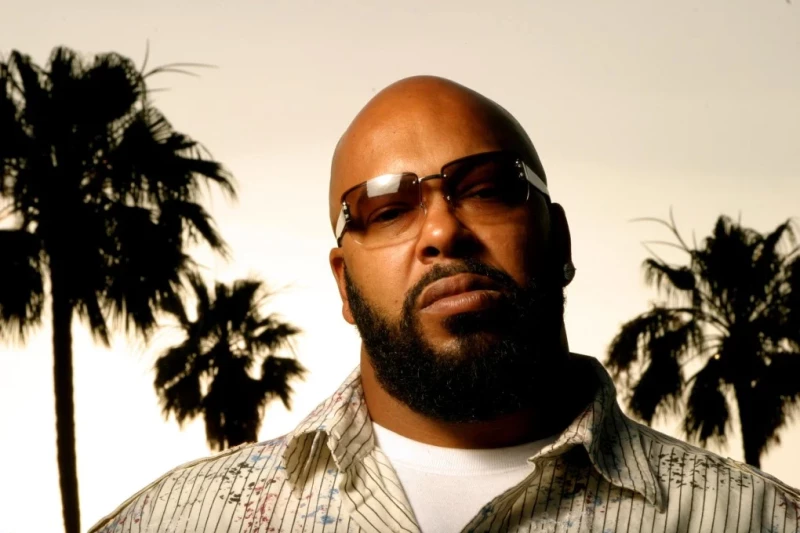
Before becoming hip-hop's most feared executive, Suge Knight was chasing a completely different dream on the football field. After playing for UNLV, Knight managed to sneak into the NFL as an undrafted free agent with the Los Angeles Rams during the 1987 players' strike. Though he was basically a replacement player, this brief taste of pro sports put around $15,000 in his pocket – not bad for a first real payday.
When his football fantasy fizzled out, Knight took a serious career detour. His first actual job in the entertainment world wasn't glamorous at all – he worked security, bodyguarding for celebrities like Bobby Brown. This gig only paid about $1,000-2,000 weekly, but it did something way more valuable than fill his wallet: it gave him an all-access pass to see how the music business really operated.
By the late '80s, Knight had hustled his way into music publishing and artist management with his first company, Future Shock Records. While it wasn't exactly printing money, this venture reportedly earned Knight his first six-figure income. It was during this period that industry insiders started whispering about his "unique" negotiation tactics – let's just say they didn't involve PowerPoint presentations and handshakes.
Death Row Records: Suge Knight's $100 Million Cash Cow
Everything changed when Knight co-founded Death Row Records in 1991 with Dr. Dre, after some seriously questionable dealings with Eazy-E and Ruthless Records (involving allegations of threats and guys with baseball bats – classic Suge). The label's first blockbuster, Dr. Dre's "The Chronic," moved over 6 million units worldwide and turned Death Row into the undisputed heavyweight champion of West Coast hip-hop.
When Death Row was firing on all cylinders in the mid-90s, the label was reportedly raking in $100-150 million annually. With a roster featuring Tupac, Snoop Dogg, and Dr. Dre, Knight was personally pocketing an estimated $25-30 million per year. By 1996, his net worth had ballooned to around $100 million – that's about $190 million in today's cash when you factor in inflation.
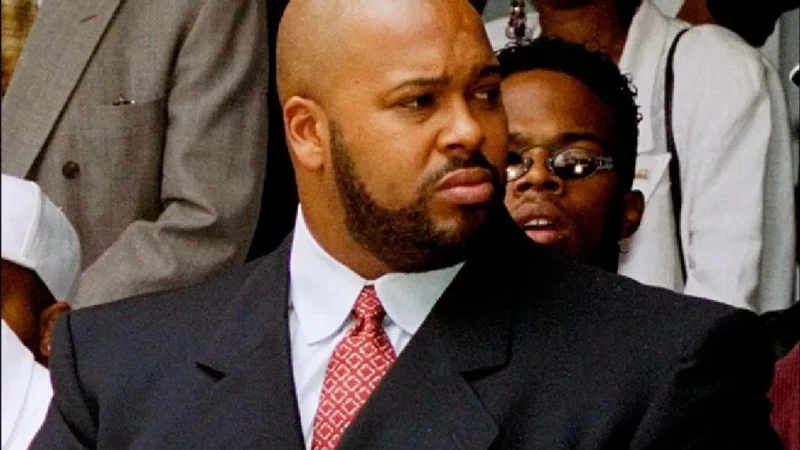
Knight's business model was brilliant in its simplicity: Death Row wasn't just a label but also a production company, letting it keep a bigger slice of the profit pie than most competitors. Plus, he somehow convinced Interscope Records to give him a distribution deal that was practically highway robbery – Death Row got financing while keeping creative control and a juicier revenue share than most indie labels could dream of.
Ironically, the Death Row catalog became so valuable that decades later, in 2021, it sold for about $240 million to MNRK Music Group. The ultimate gut punch for Knight? He didn't see a penny of that massive payday.
From Ballin' to Fallin': Suge Knight's Financial Meltdown
Suge's money troubles kicked off in the late '90s following a perfect storm of disasters: Tupac's murder, Dr. Dre jumping ship, and Knight landing in prison for a parole violation after that infamous Las Vegas beatdown. While he sat in a cell for nearly five years (1996-2001), Death Row lost its direction and star artists, but the bills kept coming like clockwork.
Then came the lawsuits – an absolute tsunami of them. By the early 2000s, Knight was drowning in legal paperwork: artists demanding unpaid royalties, business partners claiming he screwed them over, and people he'd allegedly roughed up seeking payback. These courtroom battles bled him for millions in legal fees and settlements, with one particularly nasty judgment awarding Lydia Harris a staggering $107 million after she convinced a judge that Knight had muscled her out of her rightful piece of Death Row.
The financial hemorrhaging hit rock bottom in 2006 when Knight filed for bankruptcy, with Death Row quickly following suit. The court paperwork revealed some jaw-dropping numbers: Knight claimed to have just $11 in his bank account and personal property worth a measly $1 million, while drowning in debts exceeding $137 million. Among his biggest creditors was Uncle Sam – Knight owed the IRS roughly $12 million in back taxes.
In the bankruptcy aftermath, Death Row Records was auctioned off for $24 million to WIDEawake Entertainment Group in 2009 – pocket change compared to its glory days. Knight didn't see a dime, as every penny went to the long line of creditors he owed. His money situation spiraled even further with more legal drama, culminating in his 2015 arrest for a fatal hit-and-run that eventually landed him a 28-year prison sentence in 2018.
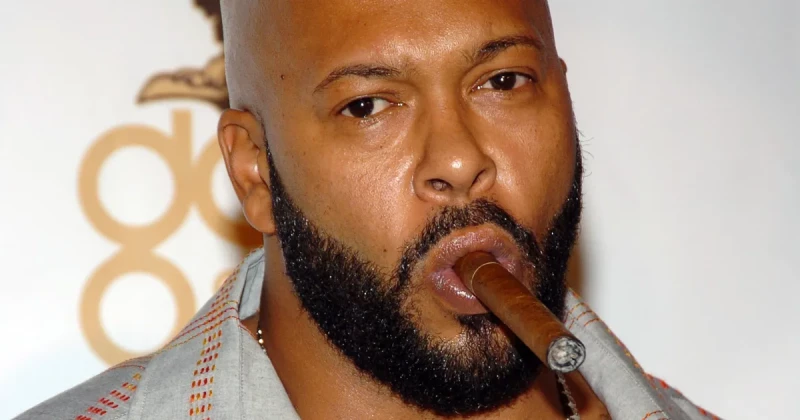
Suge Knight's Net Worth Today: Broke Behind Bars
As of 2025, financial experts estimate Suge Knight's net worth sits somewhere between negative $10 million and negative $20 million – making him one of the music industry's most spectacular financial train wrecks. Currently serving time at RJ Donovan Correctional Facility in San Diego, Knight's "income" consists of prison wages that probably wouldn't buy you a decent cup of coffee on the outside – we're talking less than a buck an hour.
While Knight sits in his cell, his financial obligations keep piling up like dirty laundry. He still owes millions to the IRS, former business partners, and creditors who won judgments against him. On top of that, he's facing ongoing civil lawsuits tied to the hit-and-run that landed him in prison, with the victim's family having secured a $10.5 million wrongful death judgment that Knight has zero chance of paying anytime soon.
Despite being flat broke, Knight has tried to hustle up some cash through jailhouse interviews and media appearances. In 2019, rumors circulated that he'd signed over his life rights to Ray J for potential book and film projects, though nobody knows what kind of money changed hands – if any – or whether that deal is even still alive.
Technically, Knight still has rights to royalties from some of his Death Row production work, but these payments likely get intercepted by the army of creditors and judgment holders before they ever reach his commissary account. Industry insiders guess these royalties might generate low six figures annually at best – a drop in the bucket compared to the mountain of debt he's buried under.
The Suge Knight Playbook: Business Wisdom from a Fallen Mogul
For all his flaws and strongarm tactics, Suge Knight dropped some serious business knowledge during his heyday. His most famous mantra – "If you don't own your masters, your master owns you" – wasn't just tough talk. This philosophy guided how he structured Death Row as an artist-focused label where creative talent kept more control and fatter profit percentages than the major labels were offering.
Knight was also way ahead of the curve on vertical integration. While other label heads were focused solely on album sales, Death Row was building its own publishing company, merch operation, and film division. This 360-degree approach squeezed maximum dollars from the creative output of Death Row artists long before it became industry standard.
"Never split your attention when you're building something big," Knight once said during a radio spot. This laser focus helped him transform Death Row from nothing into the 800-pound gorilla of West Coast rap in just a few years. During the label's meteoric rise, Knight was reportedly putting in 18-hour days, getting his hands dirty with everything from contract haggling to sitting in on studio sessions.
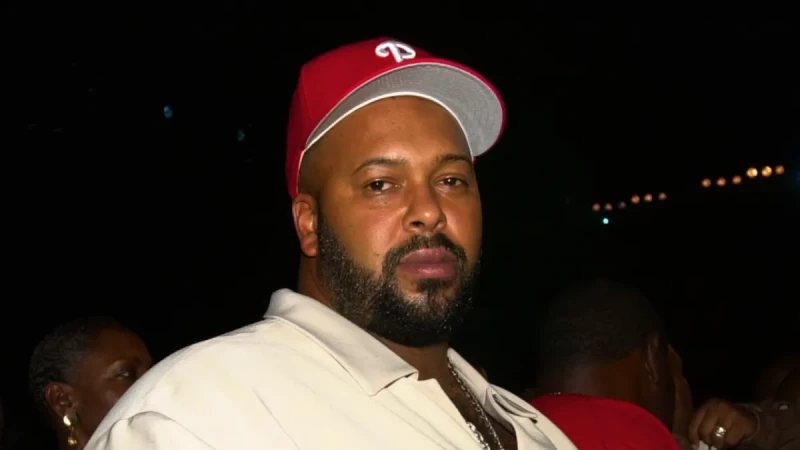
Knight's negotiation philosophy was brutally simple: leverage perceived strength. "In business, you don't get what you deserve; you get what you negotiate," was his frequent refrain. While his version of "negotiation" often allegedly involved intimidation that eventually landed him in legal hot water, the underlying principle of bargaining from a position of strength remains solid business advice when you don't take it to illegal extremes.
Perhaps most importantly, Knight insisted on authenticity in everything Death Row released. "The streets can tell what's real," he told Vibe magazine back in '95. This commitment to keeping it 100% created a powerful brand identity that connected deeply with fans and established a blueprint that countless hip-hop labels have followed since.
How Legal Nightmares Torched Suge Knight's Empire
The legal dumpster fire that consumed Suge Knight's career started burning out of control in February 1997 when he caught a nine-year sentence for violating probation from an earlier assault case. The timing couldn't have been worse – Death Row was already reeling from Tupac's murder and Dr. Dre's exit.
While Knight sat behind bars, Death Row bled approximately $6 million annually, according to bankruptcy court filings. Without Knight's day-to-day leadership and intimidating presence (let's be real, that was a big part of the business model), artists started looking for escape hatches from their contracts, further tanking the label's value and revenue potential.
When Knight finally tasted freedom again in 2001, the music world had moved on without him. Physical album sales were tanking thanks to Napster and digital piracy, and the West Coast gangsta rap sound that Death Row had pioneered wasn't dominating charts anymore. Knight tried to breathe new life into the label with fresh signings, but lightning refused to strike twice – none came close to matching the commercial punch of the label's '90s glory days.
In 2005, Knight took multiple bullets at Kanye West's pre-VMA party, racking up medical bills north of $200K according to bankruptcy documents. This financial pressure likely pushed him toward increasingly desperate business moves. One particularly costly blunder was failing to properly secure Death Row's intellectual property during bankruptcy proceedings, allowing outside investors to snatch up the catalog for pennies on the dollar.
Knight's final legal catastrophe – the 2015 hit-and-run that killed Terry Carter – put the final nail in his financial coffin. After accepting a 28-year plea deal in 2018 to avoid potential life imprisonment, Knight (now 60 in 2025) won't be eligible for parole until he's pushing 70, at which point financial recovery would be a pipe dream even if he somehow regained his freedom.
Suge's Success Secrets: The Business Gems Behind the Intimidation
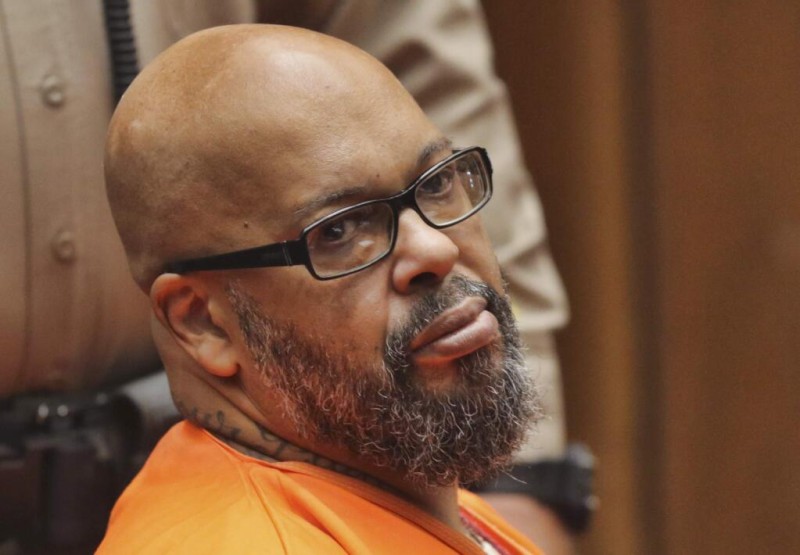
Strip away the controversial methods and legal issues, and you'll find Knight dropped some legitimate business wisdom throughout his career. "Always control your distribution," was a frequent piece of advice he gave to music industry newcomers. This insight led to Death Row's game-changing deal with Interscope, securing major label distribution muscle while maintaining independence and fatter profit margins than standard industry deals offered.
Knight was also big on building complete entertainment ecosystems rather than just pumping out albums. "An artist isn't just music; they're a brand that can live in many spaces," he told Billboard back in '94. This thinking drove Death Row's expansion into movies, clothing lines, and other merch, creating multiple revenue streams from the same artistic talent – basically the blueprint for what every major artist does today.
His most forward-thinking business insight was recognizing the value of owning catalogs decades before it became the central conversation in the music industry. "Publishing and masters are forever; chart positions are temporary," Knight often said. This understanding of music rights as appreciating assets explains why he fought so hard for Death Row to own its recordings rather than just licensing them to bigger companies.
Knight also had a masterful grasp on branding. The Death Row logo – with its electric chair imagery and bold design – became instantly recognizable to music fans, creating a loyal customer base that would buy albums based solely on the label's reputation. "When people see our logo, they know exactly what they're getting," Knight boasted to media, showing he understood branding principles that many MBAs missed.
While his intimidation tactics and legal troubles eventually torpedoed his empire, Knight's core business insights about ownership, vertical integration, and brand-building remain rock-solid today. Plenty of modern artist-entrepreneurs like Jay-Z have implemented similar principles – minus the baseball bats and threats – to build sustainable business empires that stretch far beyond simple album sales.
 Usman Salis
Usman Salis
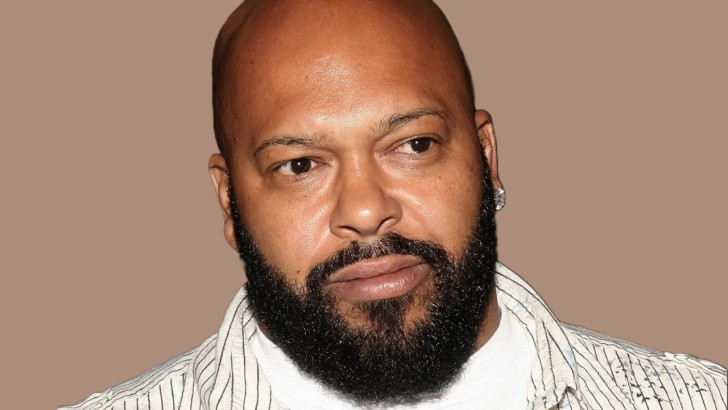
 Usman Salis
Usman Salis


